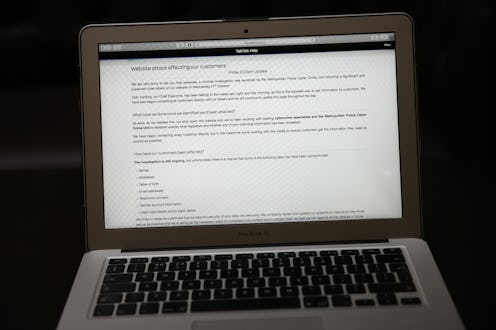News
How You Can Find Out If Your Identity Was Stolen After The Equifax Hack

Identity theft is always a scary proposition, and now it seems that the likelihood of such a troubling situation has grown immensely for most Americans. The credit reporting agency Equifax suffered a massive data breach affecting 143 million consumers. That's likely more than half of all Americans who have a credit report, and the kind of information that was stolen is precisely what would be needed to steal your identity. There are ways, though, to know whether your identity has been stolen after the Equifax hack, and protect yourself from that far-too-real possibility.
First off, it's important to truly understand what identity theft really is. Given that the increased risk is a result of the Equifax hack, it might be best to let them fully explain what you're dealing with. They have a guide online for consumers:
Identity theft is committed when someone steals your personal information — such as your name, Social Security number, and date of birth — typically to hijack your credit and use it to open up new credit accounts, take out loans in your name, or access your bank or retirement accounts. An identity thief can even use your personal information to steal your tax refunds, seek medical services, or commit crimes in your name.
Unfortunately, the first part of that has already happened, and that personal information is what was taken in this most recent hack (a smaller number of consumers also saw their credit card numbers compromised). Just to gauge how worried you should be, you might want to check on Equifax's website to see if you were one of the 143 million affected consumers. Go to that website, put in the last six digits of your Social Security number and your last name to see if you're one of those at increased risk.
If you are — and even if you aren't — you should definitely get your free annual credit report. Congress requires all three credit agencies (the other two big ones are TransUnion and Experian) to give you a free, yearly copy of the report. You can get this from the website AnnualCreditReport.com. When you see something on the report that's not yours, you know you've been a victim of identity theft.
Once a year, of course, is not very often to check this kind of information. You'd be better off with a constant credit monitoring service, but those usually don't come cheap. Given the breach, though, there's now an exception: Equifax has offered its TrustedID Premier service to all consumers in the United States for free during one year. That would provide constant monitoring for suspicious new credit activity, evidence of identity theft. There's no down side in doing so — you can still sue later if there's a class action lawsuit you qualify for (originally that was not the case but Equifax backtracked).
Another option to prevent fraudulent credit applications is to freeze your credit reports. This is a bit more complicated, but it may not be a bad move — though it does cost money.
On top of this, to watch for potential identity theft, you need to be aware of charges made and withdrawals too your real accounts. There's a possibility that thieves could use the stolen personal information to then forge checks or get debit cards that would withdraw from your checking, for example. Monitor those accounts carefully too, or use a website like Mint.com that aggregates it for you.
Also, it's important to make sure that your taxes are filed early, so that no one else can use your social security number to file a tax return with false information, potentially receiving a large refund in your name. This one you would find out once you file yourself from the IRS, but it's much better to try and be proactive on the matter.
Even if you take these preventive steps, you might later find a loan in your name that you didn't take out — or worse. But by actively monitoring you can catch it sooner and get things sorted out as soon as possible.